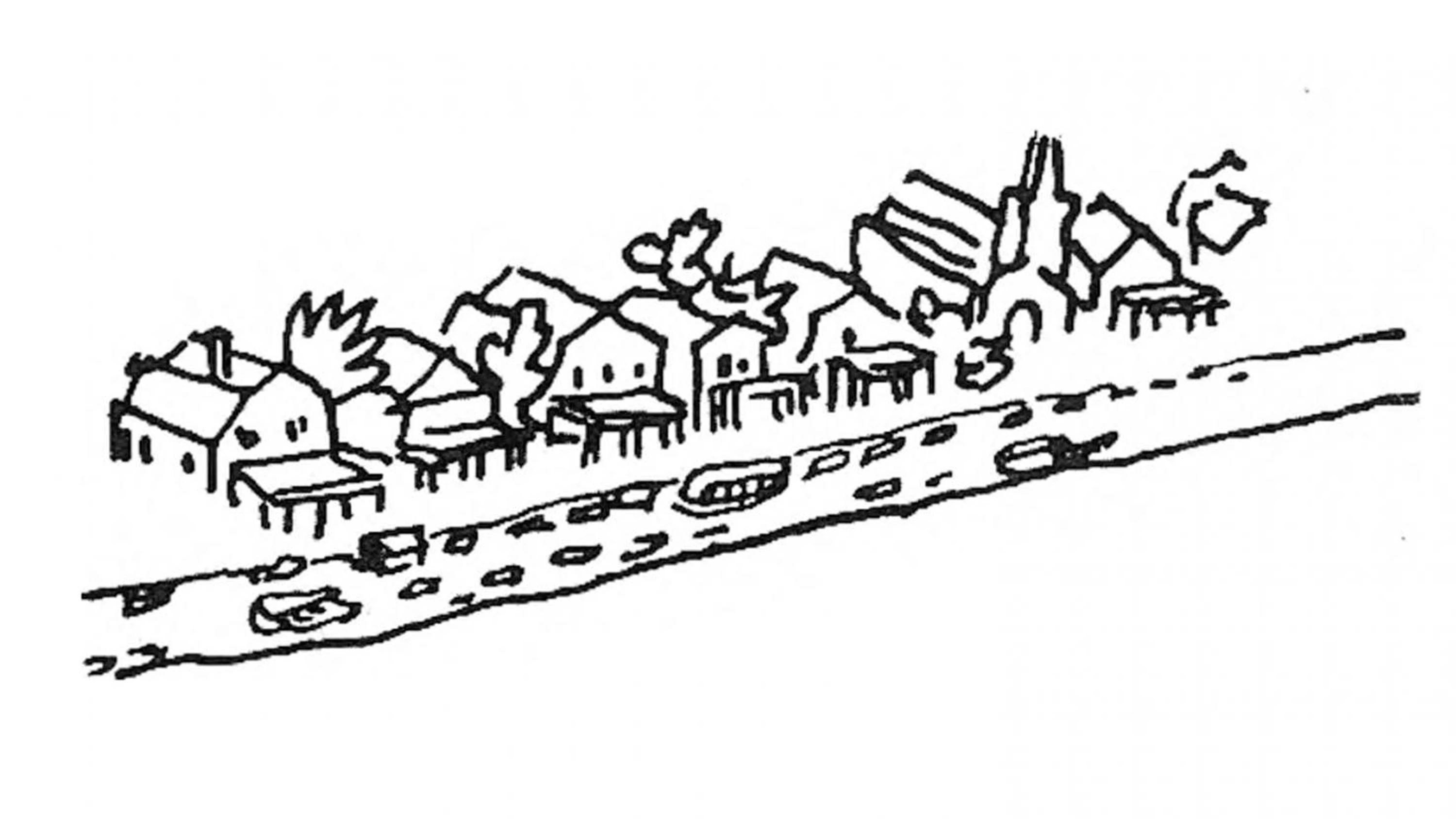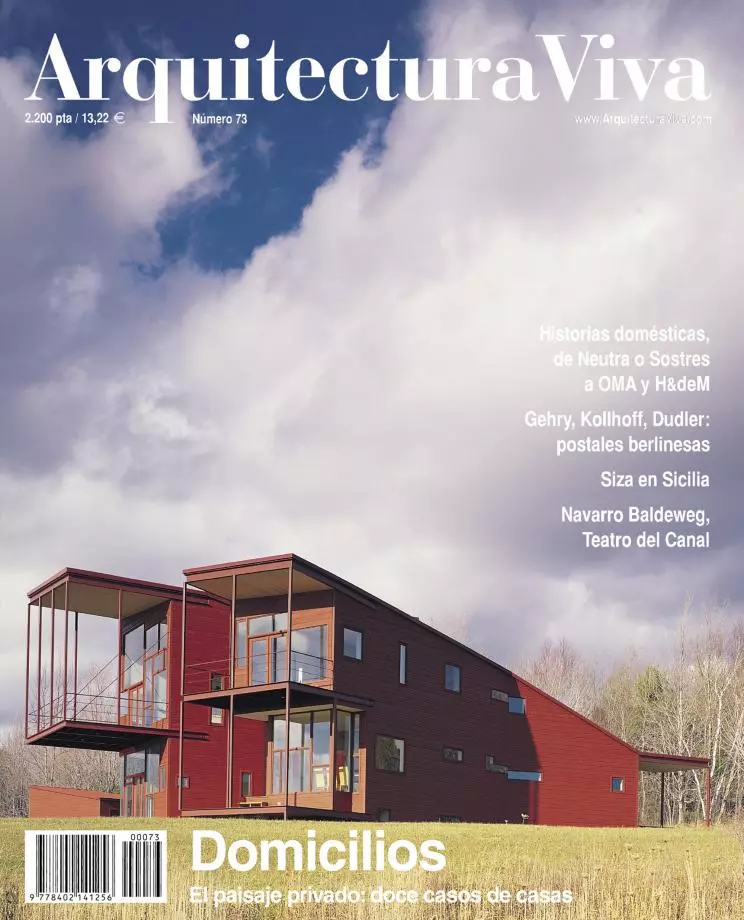
Electronic mail has not altogether supplanted postal mail, and the address on the web has not replaced the address in the city. Physical bodies cannot yet inhabit virtual spaces, no matter how much the new kinetic elites aspire to the same incorporeal circulation today enjoyed by information or money, in permanent transit through the tangled networks of a world offlows. Although some mayfantasize about the insomniac roving offrequentflyers that commute between hotels and respond to the cellphone with warnings of its changing position on the planet, the most recurrent dream still refers to a place in the world, preferably in theform of a domesticfiction. Some of the most recent are presented in this issue, devoutly grouped under an archaic title - the Spanish ‘domicilios’- borrowed from a collection ofshort stories by the writer and journalist Vicente Verdú.
If these signature houses are addresses, they are so, above all, of domestic dreams, because in them resides the capacity of architecture tofeed the promise of a better life. Nowadays nevertheless, this promise is to a large degreefictitious: thefantasies that dwell in the house are in ironic contradiction with the impressive multiplication ofresidential projects that consume territory in the manner of an implacable metastasis, devastating at once the illusion of a rustic paradise and the elusive myth of the individual house. A dream turned into a nightmare, these choral complexes ofresidences orchestrated in dispersed orderfeign the same autonomous personality as the swarm of motorized molecules that moves toward them in theform of automobiles, and whose Brownian motion appears as random in its minute details as it is predictable in its general pattern.
Statistical like the laws of gases, the uncontrolled sprawl of the urbanfabric refutes the organic predictions which augured that cities would stretch with the anatomical logic of articulated structures, and clamorously dissolves all illusory hopes of each individual cell having a voice and purpose of its own. The dense scheme of the compact city thus liquefies its texture in a residential pulp that spills over the territory, reaching every nook and cranny and drowning in its viscous substance the deceptive fiction of the singular house, segregated and stupid like the elementary particles described by the French novelist and poet Michel Houellebecq. The material address outlives the virtual one just as the postal address does the electronic, but both sink in the same ocean of garbage that buries as much the physical universe of the landscape as the immaterial universe of communication.






